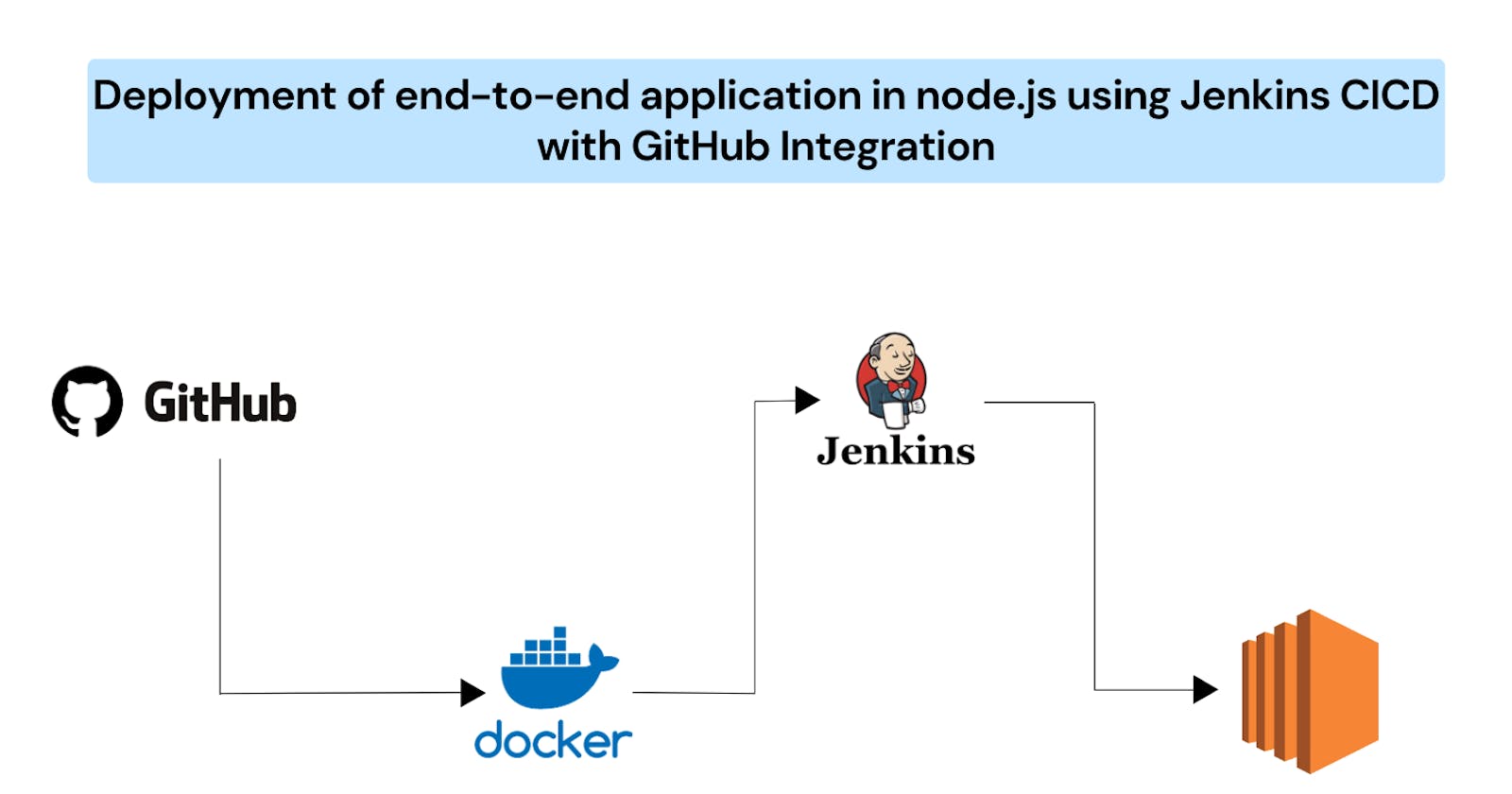🔗Tools Required:-
GitHub: For source code repository and version control.
Docker and Docker Compose: For containerizing the Node.js application.
Jenkins: For setting up and managing the CI/CD pipeline.
SonarQube: For continuous inspection of code quality.
OWASP tools: For identifying security vulnerabilities in the application.
Trivy: For scanning Docker images for vulnerabilities.
DevSecOps practices: Integrating security at every phase of the software development lifecycle.
🔗Step 1:- Launch Instance
⭐ Create EC2 instance & connect


🔗Step 2:- Install Jenkins

⭐After installation of Jenkins add an 8080 port in the EC2 security group

⭐Access the Jenkins in your web browser it opens the unlock Jenkins window

⭐Enter the Administrator Password & click on Continue, Jenkins gets started.
⭐Create the job, select pipeline

⭐Add the GitHub URL

⭐Pipeline script -> Add your code & save
pipeline{
agent any
environment{
SONAR_HOME=tool "Sonar"
}
stages{
stage("Code"){
steps{
git url:"https://github.com/sarikakamble/node-todo-cicd.git/", branch:"master"
echo "Code cloned successfully."
}
}
stage("Sonarqube Analysis"){
steps{
withSonarQubeEnv("Sonar"){
sh "$SONAR_HOME/bin/sonar-scanner -Dsonar.projectName=nodetodo -Dsonar.projectKey=nodetodo -X"
}
}
}
stage("Sonarqube Quality Gates"){
steps{
timeout(time:1 , unit:"MINUTES"){
waitForQualityGate abortPipeline: false
}
}
}
stage("OWASP"){
steps{
dependencyCheck additionalArguments: '--scan ./', odcInstallation: 'OWASP'
dependencyCheckPublisher pattern: '**/dependency-check-report.xml'
}
}
stage("Build & Test"){
steps{
sh 'docker build -t node-app-batch-6:latest .'
echo "Code built successfully."
}
}
stage("Trivy"){
steps{
sh "trivy image node-app-batch-6"
}
}
stage("Push to private DockerHub Repo"){
steps{
withCredentials([usernamePassword(credentialsId:"DockerHubCreds",passwordVariable:"dockerPass",usernameVariable:"dockerUser")]){
sh "docker login -u ${env.dockerUser} -p ${env.dockerPass}"
sh "docker tag node-app-batch-6:latest ${env.dockerUser}/node-app-batch-6:latest"
sh "docker push ${env.dockerUser}/node-app-batch-6:latest"
}
}
}
stage("Deploy"){
steps{
sh "docker-compose up -d"
echo "App Deployed successfully."
}
}
}
}
🔗Step 3:- Install Docker

⭐Add your current user & Jenkins to the docker group to get all permission
sudo usermod -aG doker $USER
sudo usermod -aG docker jenkins
🔗Step 4:- SonarQube Server
⭐Add SonarQube plugins


⭐Install SonarQube server

⭐Add the 9000 port in the EC2 security group

⭐Access the SonarQube on a web browser

🔗Step 5:- Add new credentials
⭐Go to Manage Jenkins -> Credentials


🔗Step 6:- Build your application
⭐Click on Build Now

⭐Add the port 8000 in EC2 security group to access your application

⭐Access the application on a web browser

📚Happy Learning :)
